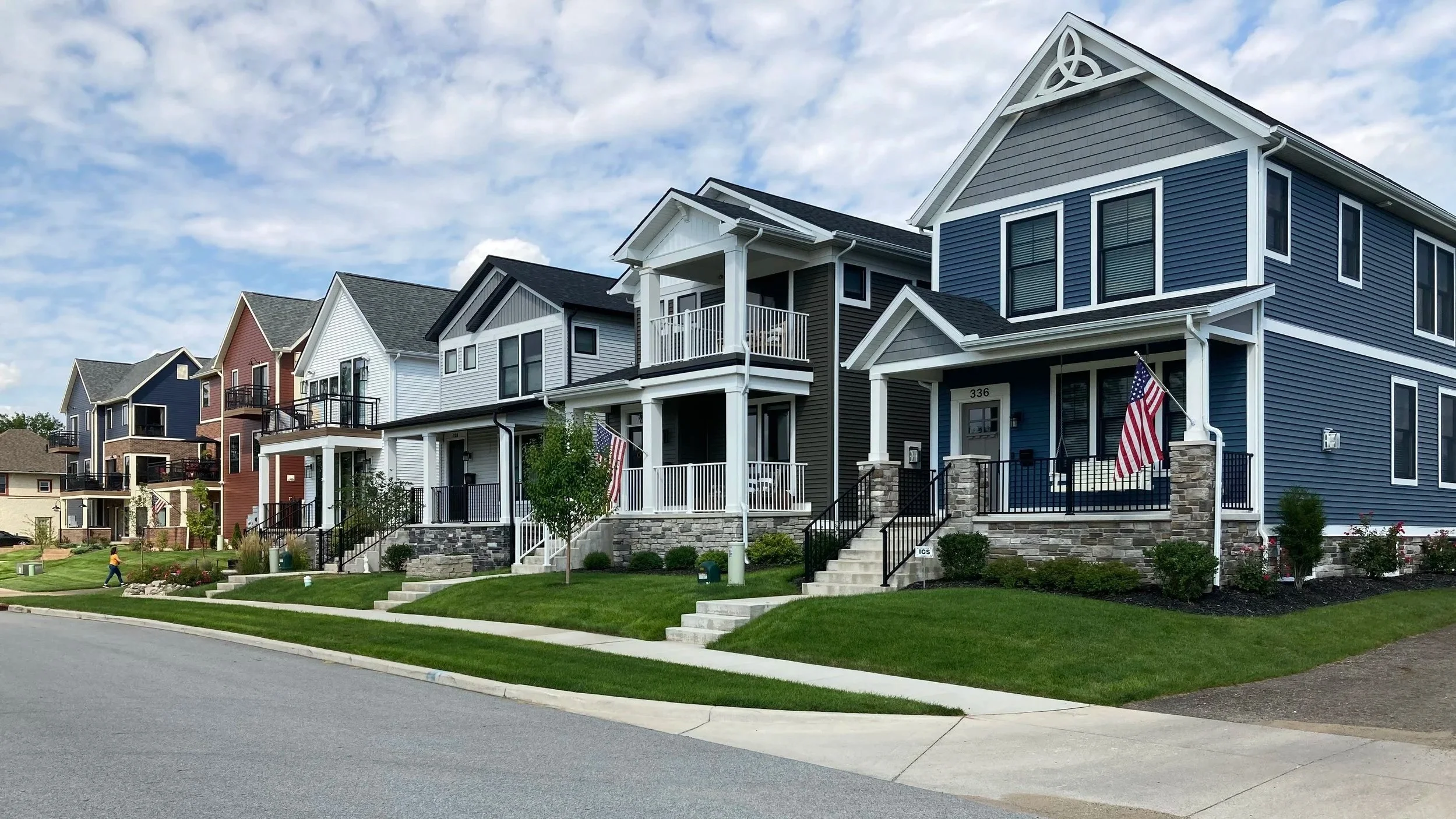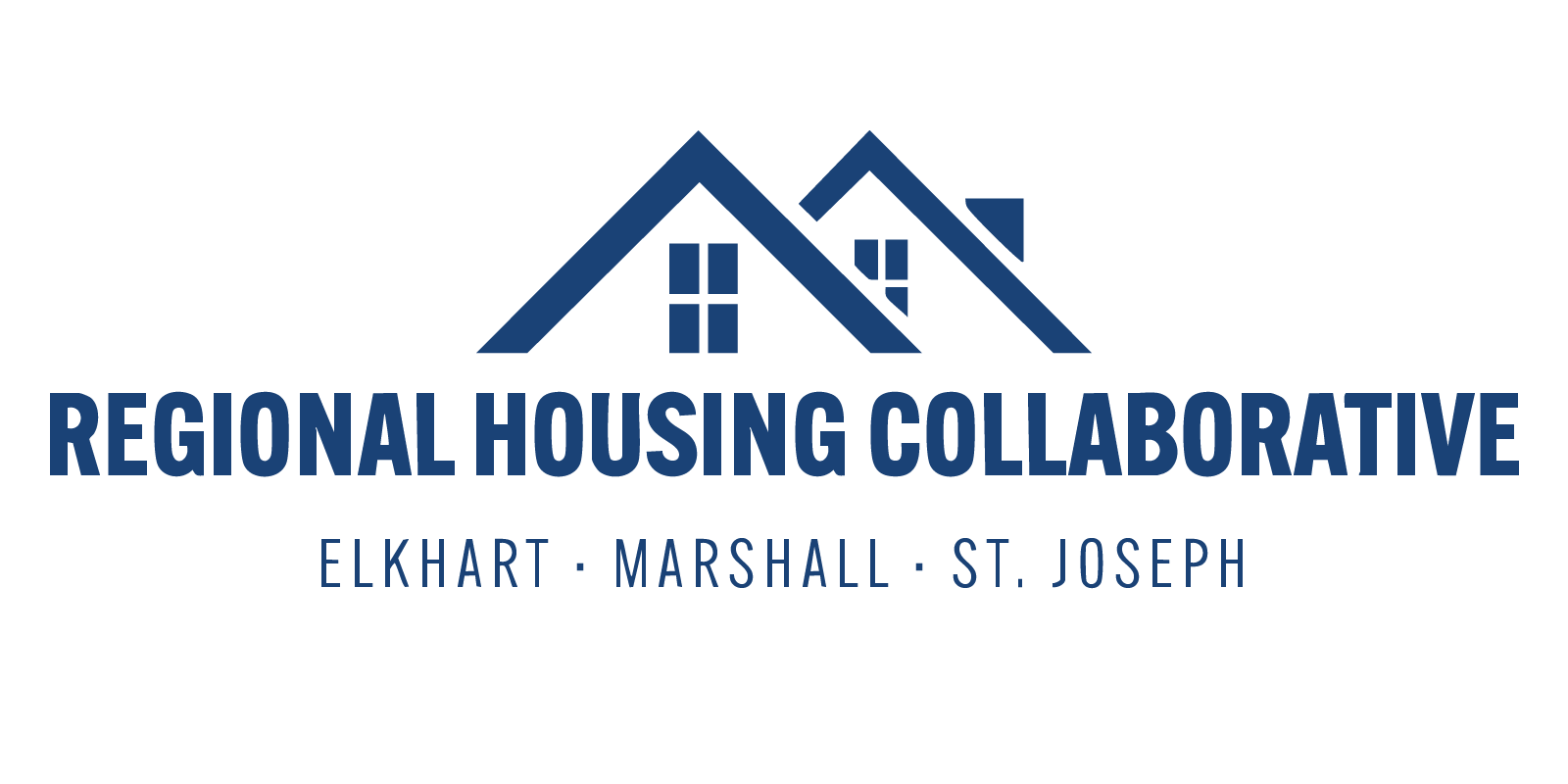
Regional Housing Collaborative
The Regional Housing Collaborative (RHC) is a groundbreaking initiative dedicated to strengthening our communities across St. Joseph, Elkhart, and Marshall Counties. We're tackling two critical challenges that impact the well-being and economic vitality of our region:
The persistent shortage of attainable housing.
The abundance of vacant, abandoned, and deteriorating properties hinders community growth.
Our mission is to improve the quality of life in Northern Indiana by transforming vacant properties into thriving homes and by increasing access to attainable housing for working families, first-time homebuyers, and low-income residents
Our Journey to Collaboration
Economic shifts, changing demographics, and decades of underinvestment in key areas have all contributed to a growing housing crisis. Across St. Joseph, Elkhart, and Marshall Counties, communities face shared challenges that do not stop at city or county lines, from severe shortage of attainable homes to thousands of vacant, abandoned, and deteriorating properties.
Recognizing that no single municipality could solve these issues alone, leaders from across the region came together to craft a unified strategy. Their efforts were galvanized by a $20 million grant from Lilly Endowment Inc. Through extensive planning, regional housing studies, and dedicated partnerships, the Regional Housing Collaborative was formed. We aim to create sustainable, long-term solutions that benefit all residents and build more resilient communities.
The numbers are stark: our region is facing a deficit of more than 15,000 attainable housing units, while over 2,000 blighted properties drain public resources and negatively impact neighborhoods. This collaborative exists to change that. Led by the Community Foundations of St. Joseph, Elkhart, and Marshall Counties, in partnership with the Michiana Area Council of Governments (MACOG), we are creating a Regional Land Bank and a Regional Attainable Housing Investment Fund to revitalize communities, stabilize neighborhoods, and increase housing access.
Key Programs Driving Our Impact
Regional Attainable Housing Investment Fund
The Regional Attainable Housing Investment Fund (RAHIF) is a flexible and powerful financial engine, strategically capitalized to accelerate the creation, preservation, and accessibility of attainable housing throughout St. Joseph, Elkhart, and Marshall Counties. RAHIF aims to bridge critical funding gaps, incentivize development, and support residents on their path to stable housing. The revolving loan fund is divided into three programs:
Buy: Single-Family Purchase Mortgages - providing accessible mortgage options to help individuals and families, particularly those with low to moderate incomes, achieve homeownership. These loans aim to reduce financial barriers to purchasing a home within our communities.
Build: Bridge Loans & Construction Financing - offering vital short-term bridge loans and comprehensive construction financing to non-profit developers. This ensures that new attainable housing developments, including single-family homes and multi-family units, can move from concept to completion, increasing our region’s housing supply.
Keep: Mortgage Refinance Loans - enabling current homeowners to stay in their homes and achieve financial stability by lowering their monthly housing costs. Low-income homeowners at risk of losing their homes can refinance existing mortgages up to $200,000 at a below-market interest rate for 10-, 15-, 20-, or 30-year terms.
The RAHIF is overseen by an Advisory Committee comprising appointed members from each of the mayors of Elkhart, Goshen, Mishawaka, South Bend, and Plymouth; an appointment each from the Community Foundations in Elkhart, Marshall, and St. Joseph Counties; and an appointment from the South Bend-Elkhart Regional Partnership.
Regional Land Bank
Addressing the blight of vacant and abandoned properties is central to revitalizing our neighborhoods. The Regional Land Bank serves as a strategic tool to manage and repurpose these underutilized assets efficiently. Its functions include:
Strategic Acquisition: Acquiring tax-delinquent properties, abandoned properties, or those no longer serving a productive purpose.
Property Management: Holding and maintaining properties to prevent further deterioration and stabilize neighborhoods.
Facilitated Redevelopment: Preparing properties for responsible redevelopment, often paving the way for new attainable housing, green spaces, or community facilities.
More information about this program is coming soon.

